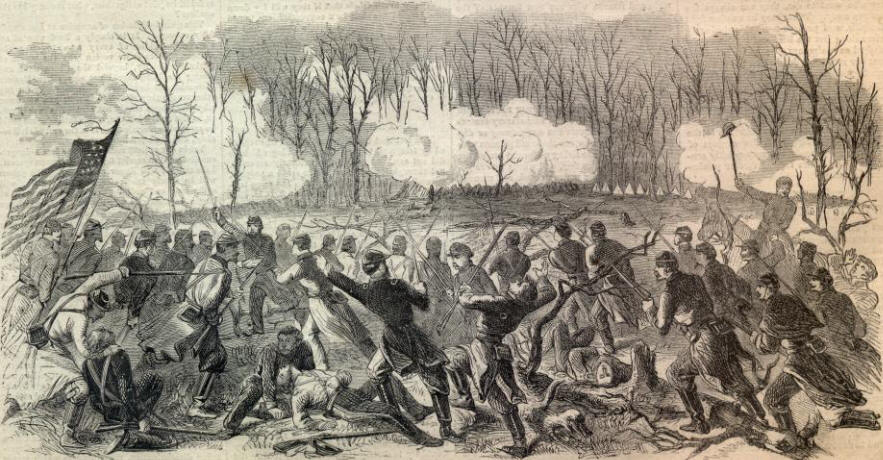
The Governor’s Pawns: Hostages and Hostage-Taking in Civil War West Virginia by Randall S. Gooden. Kent State University Press, 2023. Cloth, ISBN: 978-1-60635-457-5. $55.00.
On April 28, 1863, a detail of Union soldiers took George W. Thompson, the sheriff of Barbour County, Virginia, into custody by order of Francis H. Pierpont, then governor of the pro-Union western region of that state, still nominally part of the Confederacy. He became the first hostage held under a law passed by the citizenry of Virginia’s forty-six breakaway western counties the preceding February. He would not be the last. Thompson fit the bill for arrest because officials in Wheeling agreed he had expressed “known disloyal [i.e., Confederate] sentiments”; they used the on-going raid by Confederate General John J. Imboden as justification for his warrantless arrest.
Pierpont’s actions immediately caused consternation in the highest ranks of Union officialdom. Joseph Holt, the judge advocate general of the Union army, wrote that the “seizing and holding of hostages in reprisal for the captures made by the enemy is certainly an exercise of the war-making power, belonging exclusively to the General Government, and which cannot be shared by the Governor of the States without leading to deplorable complications.” Thompson was put on trial and eventually discharged by federal Judge John J. Jackson, who ruled while the governor could ask for hostages to be taken, it “must be done under the power of the War Department and subject to its confirmation.” The making of war powers belonged to Congress.
Randall Gooden became aware of this and other acts of state-sanctioned hostage taking while a doctoral student rummaging through archival material in the West Virginia and Regional History Collection. Among the semi-processed papers of West Virginia’s first governor, Arthur I. Boreman, was a musty envelope marked “Hostage Letters.” Inside were 103 miscellaneous letters and attachments that told the story of ordinary West Virginians “who were arrested and held by their own state government as hostages for the safe return of other West Virginians whom Confederate soldiers had seized.” That envelope opened Gooden’s eyes to a new perspective on the formation and early years of a state born of internecine warfare.
Taking hostages by Union and Confederate forces was a common practice during the war. What made West Virginia unique was that the state government engaged in this practice. Gooden’s diligent use of documents related to the statehood movement, newspaper accounts, genealogical records, court transcripts, and personal letters and memoirs shows how this practice devolved into a cycle of revenge taking: a settling of long-standing personal feuds that left a bitter legacy long after hostilities ended. Hostage taking took no notice of social status, race, or geographic locale. Gooden deftly details the experiences of numerous individuals throughout the state who were unceremoniously swept up in the tumultuous events surrounding the creation of a state during a civil war.
Gooden examines the ugly legacy of the hostage law. “The hostage law,” he writes, “was a hastily drafted measure that resulted from emotion more than sound legal and practical reasoning. It smacked of vengeance more than logic.” During Reconstruction, Gooden contends, “the issues of the hostage law no longer pressed. The war was over. Many of the legal points were moot, and the consequences to individuals and communities faded or merged into the massed effects of the Civil War.” So why study this phase of West Virginia history in such detail? Gooden posits that “the experiences of West Virginia, its governor, and his hostages provide lessons in law and practicality, in power and its excesses. They teach about the dangers of personal violence and intimidation, not only to the victims, their families, and their communities, but to the instigators.” The echoes of West Virginia’s hostage law, its value, and its limitations reverberate today. “West Virginia’s hostage experience,” Gooden concludes, “also contributed to the understanding of the role of the state government versus the national government in the United States.” We ignore these lessons at our peril.
Gordon Berg is an independent scholar who writes from Gaithersburg, Maryland.
